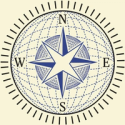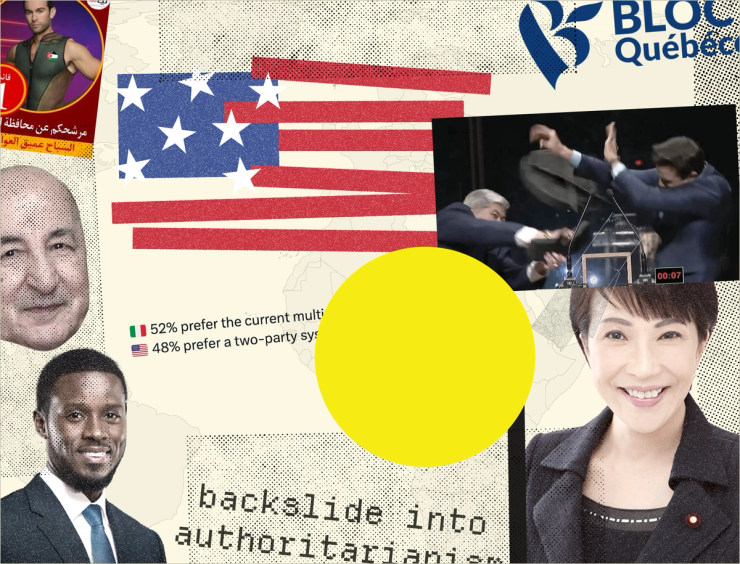The News
Welcome to the Global Hot List, our subjective, dynamic ranking of the races and political developments you should be paying attention to right now, compiled by world elections expert Brad Glasser.
In today’s edition: An ultra-conservative candidate in Japan, Senegal’s new president calls a snap election, and The Boys make a cameo in Jordan’s campaign.
The List
1. USA – Chaotic scene
As Kamala gathers momentum, a second Trump assassination attempt has roiled the race. Trump took to social media to hammer his political opponents for allegedly inciting hatred against him, in the midst of chaos being stoked by his campaign’s misinformation and bigoted rhetoric around Ohio’s Haitian immigrant community. Meanwhile, conspiracy theories around the incident continue to swirl online. With under two months until the election, tensions have ratcheted up to a high previously unseen.
2. Japan – Extreme end
Lawmaker and minister Sanae Takaichi is running to be Japan’s next prime minister, representing a potential extreme shift to the right. Takaichi is one of the top contenders in the race for Liberal Democratic Party leadership, which will determine who leads the country, given the party’s majority in parliament. Considered a favorite of former prime minister Shinzo Abe, Takaichi has been described as an “ultra-conservative” and once drew international condemnation for an “enthusiastic endorsement” of a book that glorified Hitler. Takaichi is the incumbent economic security minister and served as interior minister in the Abe government.
3. Senegal – Snap call
Months after its presidential election, Senegal will go to snap parliamentary elections in November. The last parliamentary elections, held in 2022, saw a divided outcome, as the ruling alliance fell one seat short of a majority. Currently, the new left-wing government of President Bassirou Diomaye Faye holds only around a third of seats, but early analysis indicates that a snap election is likely to see his coalition win a majority. Faye won earlier this year with a campaign against corruption and foreign influence in Senegal, and the president has argued he needs more legislative seats to overcome obstruction on these issues.
4. Canada – LaSalle drama
Justin Trudeau’s Liberal Party narrowly lost a crucial by-election held in Quebec. The race in LaSalle–Emard–Verdun was close, but ultimately Trudeau’s Liberals lost with a razor-thin difference, despite the riding having a reputation as a Liberal stronghold. In 2021, the Liberals came up with nearly 43% of the vote, a margin of more than 20 points over the next competitor. This time the Liberal share was cut down to under 28%, putting them in neck-and-neck competition with the apparent victors, the Bloc Quebecois.
5. Algeria – Total revision
Algeria’s election saw a revision of vote totals, with 10% being shaved off from the president’s winning result. Dropping from 94% to 84% of the vote in the Constitutional Court’s announcement of votes, the adjustment comes after the opposition and the president himself condemned the conduct of the election. Nonetheless, Tebboune’s government has been accused of instituting a repressive political atmosphere, marring the fairness of the contest.
6. Tanzania – Protest ban
Tanzania is witnessing a clampdown on protest as the country gears up for its election campaign. After the disappearance and murder of a member of the opposition Chadema, a protest calling for an investigation into the incident along with other missing persons was banned by the government. Critics have slammed the government’s lack of transparency, with an article in The Continent accusing President Samia Suluhu Hassan of orchestrating a “backslide into authoritarianism” that characterized the governments of her predecessors. “Abductions, arbitrary arrests, and the banning of opposition rallies are on the rise” in the midst of the country’s election season.
7. Jordan – Meme posters
Jordan’s election featured a visit from “The Boys,” as characters like Homelander from the Amazon Prime hit went viral on photoshopped campaign posters. In response to an “oversaturation” of campaign posters used to promote one obtrusive politician, “meme posters” with characters from the TV show started to make appearances on Jordan’s streets. The posters made their way to the broader Internet, and ended up garnering over 2,000 upvotes on “The Boys’” subreddit.
8. Brazil – Debate brawl
A mayoral debate in the city of Sao Paulo saw a candidate assaulted with a chair. Jose Luiz Datena, a crime journalist, erupted and “whacked” the self-help influencer Pablo Marcal with the weaponized seat, creating chaos and a flurry of international attention. Datena and Marcal have been feuding for weeks, but neither is poised to make the run-off. Marcal, a far-right candidate who has been surging in recent polls, likened the incident to the Trump assassination attempt from July.
9. Italy – American style
48% of Italians would prefer an “American style” two-party system, according to a new poll. Support for different political systems breaks along ideological lines, with right-wing parties more in favor of America’s two-party approach, while parties of the left and center mostly prefer Italy’s multiparty landscape. Some right-wing politicians have advocated for a single tent to encompass the right, “based on the GOP.”


